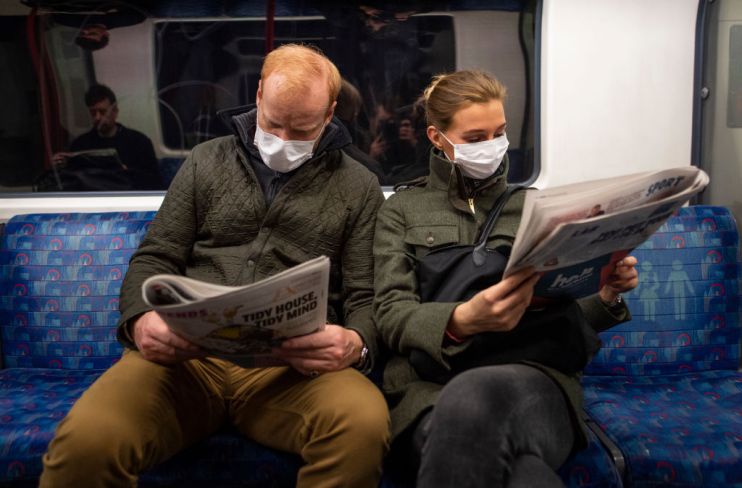No trace of coronavirus on London Tube or buses, study finds

No traces of coronavirus have been found in London’s Tubes, buses and stations, according to a wide-ranging new study.
Experts from Imperial College London have been taking air and surface samples from journeys on London’s transport network each month since October.
Scientists mimicked a typical commuter journey on London’s bus and Tube network, and repeated it every four weeks “to get an idea of how things change over time, rather than try a scattergun approach across the entire network”.
They swabbed high-contact areas such as ticket barriers, stop buttons on buses and escalator handrails. No swabs returned a positive result when tested for Covid.
They also found no trace of any new Covid mutations, such as the Kent variant, which has now become the dominant form of coronavirus in the UK.
Dr David Green, senior research fellow at Imperial, said the findings from the “very sensitive” testing were “reassuring for passengers”.
He added that the test results were likely the result of regular cleaning and social distancing on London’s transport networks.
“During the early stage of the pandemic, everybody was very concerned about washing their hands and touching surfaces,” said Green.
“As we’ve moved on, we are much more convinced that the routes of transmission tend to be through the air — through breathing, through being in confined environments, not maintaining social distancing or not wearing masks.”
However, he noted that the tests should be misconstrued as a free pass to scrap social distancing measures.
“The occupancy level is much lower and everybody is wearing masks. All of these things will reduce the chances of the virus being spread in these environments,” he said.
Green added: “It will be an early warning system to tell us, ‘is the risk of transmission on transport networks becoming more likely as more passengers return to the networks?’”
“We do need to keep social distancing in mind, and we do need to keep wearing masks because these are the reasons that the virus transmits between humans. It’s through aerosol transmission, it’s through touching surfaces, it’s through being very close to other people,” he said,
But the results will come as a major boon for plans to revive the capital after months of closure.
The Prime Minister is facing growing pressure from Tory backbenchers to announce firm dates for lifting restrictions across the country, as the UK continues to see a downward trend in Covid cases.
It comes after figures released today by the Office for National Statistics (ONS) showed the level of coronavirus in the capital has plummeted over the past week.
Around 1 in 100 Londoners had Covid in the week to 12 February, according to the latest ONS infection survey — down from 1 in 63 the week before.
The dramatic drop means London is no longer the most-infected region in the country, after the North West of England tipped past the capital with an estimated 1 in 91 people infected last week.